The World Nomads Podcast: RV Travel During COVID-19
In this episode, how Google and the National Park Service helped this couple create an updated itinerary after COVID-19 destroyed their European plans.
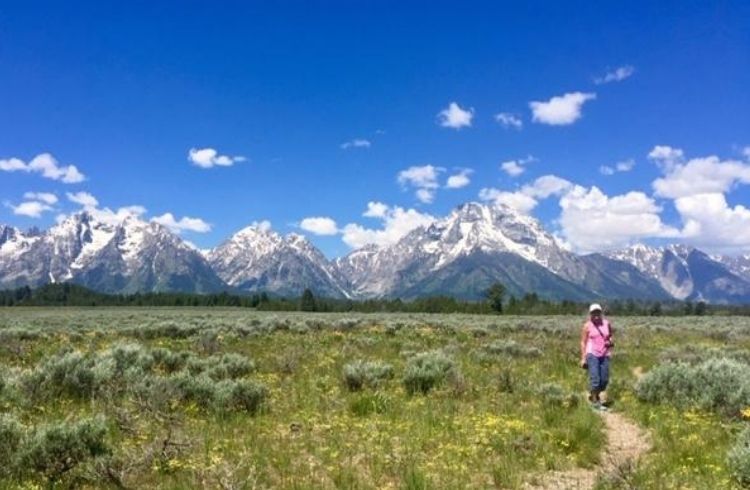 Photo © Supplied: Grand Teton National Park
Photo © Supplied: Grand Teton National Park
Listen Now
The World Nomads Podcast: Traveling during COVID-19
The World Nomads Travel Podcast has suspended its regular destination episodes, and in their place, sharing the thoughts of travelers who are shaping the future of the industry post COVID 19. We tap into their vast bank of knowledge to discover what can be learned from the past as we plan a new way of traveling moving forward.
What’s in the episode
00:35 Restrictions being lifted or relaxed
01:30 Plans change
02:19 Let’s get to know Rebecca
05:12 When you can’t get to Europe
09:38 What America looks like on the road
10:58 Traveling to Mexico
12:40 Vacations in fall
13:29 How’s Marcos coping?
14:50 Next episode
Quotes from the episode
“We stayed at the Lake McDonald Lodge; they wouldn't allow anyone in their famous lobby unless you had a reservation. Bedrooms were not cleaned in between your days there, which was fine with us. And then it was grab and go. So, no bar, no sitting by the large fireplace…” - Rebecca
Who is in the episode
Rebecca Merrell and her boyfriend Marcos were supposed to go to Eastern Europe this summer for the Euro Cup Soccer Tournament in Romania, Hungary, and Slovakia, but COVID-19 forced a change of plans.
Instead, they flew to Boise from San Diego to begin a road trip in Stanley, Idaho in the National Forest of the Sawtooth Range.
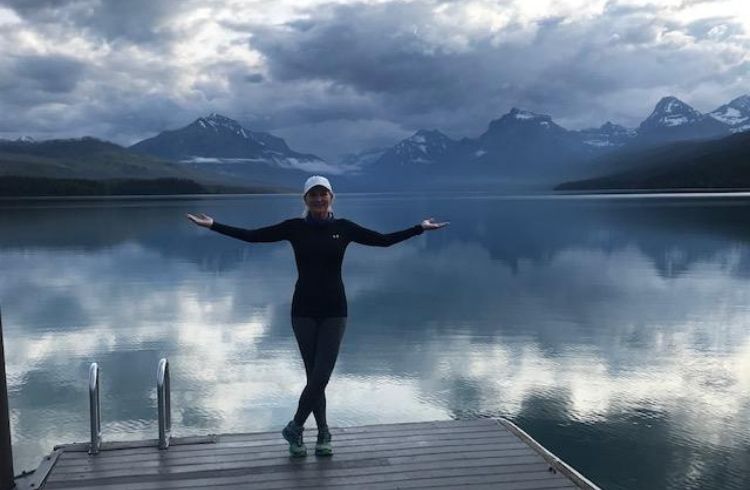
Follow Rebecca on Instagram @rebeccasmerrell
Resources & links
Read Rebecca’s article America The Beautiful: Adventure Travel in The Time Of COVID-19, Part I.
Find a park by state in the US.
How to Plan a Safe Road Trip During COVID-19.
USA Road Trip: California's Highway 101.
Bookmark World Nomads travel safety alerts.
You can get in touch with us by emailing podcast@worldnomads.com.
Help us spread the word
We’d love it if you could please share #TheWorldNomadsTravelPodcast with your twitter followers and join in the conversation in our Facebook Group.
If you liked this episode please head to Apple Podcasts and kindly leave us a rating, review, and of course, subscribe so you don’t miss an episode.
We use the Rodecaster Pro to record our episodes and interviews when in the studio, made possible with the kind support of Rode.
Kim: Hi it’s Kim and Phil with you and yes Phil, so many plans canceled or changed because of coronavirus.
Phil: Restrictions are being lifted or at least relaxed in many places around the world, although it’s not appropriate according to health advice to totally remove controls.
So, moving forward in our episodes we will be reflecting that with practical guidance for travelers to those countries that are on the radar again.
We will include some information about what changes companies have put in place, like limiting the number of people on a boat, how often vehicles and trains are sanitized, etc.
And in this episode will hear examples of that from Rebecca, who as you said Kim had her plans changed when restrictions in Europe were at their highest.
Kim: Yes! Rebecca and her boyfriend Marcos had it all planned, tickets to three UEFA soccer games in Budapest and Bucharest as part of the Euro 2020s, Dracula’s castle, monasteries, etc. and then COVID-19 hit. Determined to use the time put aside Rebecca turned to Google and the National Park Service to create a six-week road trip. Before she tells us about that, let’s get to know a bit about Rebecca.
Rebecca: Well, I live in San Diego and I've been here for a little over 20 years. I've worked in a couple of different industries, but the first one being more environmental protection and wildlife preservation, and then throughout the years, I ended up moving into the medical device field, which I've been in now for 15 years.
Kim: That is great, but where's the segue?
Rebecca: Yeah, there really isn't one. I ended up working in a field in marketing after I was doing international environmental work. I moved back to California and at that point, I enjoyed marketing for an environmental consulting firm, but then I thought, "You know what? I really want to try my hand at sales. I think I might be good at this." And I worked, you'd be happy to know, in the wine industry for about four years, I'd actually did spell the Australian premium wine collection for a while.
Rebecca: Yeah. So I went from the wine industry to sales and medical sales because I had the sales experience. And in between all of that, I had always loved travel. I've traveled since I was 13 and did a lot of long trips. So, four months in Southeast Asia on my own when I was 22, and then I did another seven months in Southern and Eastern Africa, spent some time in Seychelles. Summer school in France and I did an internship at the U.S. Consulate in Sydney, Australia in 1992. So I got to spend a good amount of time there and doing weekend trips to Byron Bay and that kind of thing, which was a blast.
Kim: No stranger to travel. Have you earned any money from it?
Rebecca: Sadly? Now? I have not. And the website I write for now is sort of more in the hobby stage. I wish it was a full-time job, but it's always been some travel. When I worked in international environmental work, I did probably four that job. To a few places, Asia and Ukraine, and other places like that. But, in terms of just like a travel industry, it's just been a hobby and a passion forever, and a lot of adventure travel hiking. I'm a big scuba diver and just love to be outside, love nature, and love culture. So. Can't get enough of it, actually.
Kim: Perfect combination. Although, we have been challenged in 2020, haven't we? At the time I'm chatting to you, I think we're about seven months into this pandemic. And we all had the lockdown in March where we couldn't really do anything, but hit the road, really. This is why I'm speaking to you from a campground in New South Wales, South of Sydney. I think you were supposed to be in Europe, but obviously you couldn't get there. So you hit the road and look, America is a great place for road trips. There's so much to explore and so diverse.
Rebecca: Yes, it's really got everything and think people like John Muir and Teddy Roosevelt and all the heroes that set up the parks and preservations of areas that would have been destroyed if they hadn't.
Kim: Take us through your road trip, which I did follow on Facebook, you did enter some pretty cool places. So, offering inspo to someone and it's okay to have the dog bark, I'm sitting in a campsite, I'm on snake alert.
Rebecca: I'm like, "If I just hold her dinosaur toy, maybe she'll be quiet."
Kim: Some inspo for people that... And we are avoiding air travel because we'll certainly in Australia, there are only four reasons why we can leave the country. We've still got hard border closures as well at the time of recording. So, we are all hitting the road. We are all kind of exploring our backyard and given that we can work remotely, it's fantastic. A great opportunity. So, for the American audience, who can't get to Australia at the moment, give them some inspiration. If they were to jump in their car, where did you go?
Rebecca: Well, we did fly first from San Diego to Boise, Idaho, and Southwest Airlines was great. They had the middle seats empty. They made sure everybody was wearing a mask. So if you are flying, there are airlines that are still taking measures for that, as far as I know. And if not, and you're just going to get on the road. There's a couple of tips I would suggest. I mean, if you going to go camping, obviously reservations for campsites have been out of control. So, make sure to look at that ahead of time, the state park websites, and then of course the national park service to nps.gov, which has all the campsites.
Rebecca: So, if you're a camper, that's the way to do it. And as you have heard, a lot of people can't even rent the RVs anymore because there are none available. I think there's one of those websites now where you can actually find a parking spot on a winery or some other places that you know, "Okay, we're going to only charge you a small fee and you can at least park your sprinter there," or your van or whatever it is you're in.
Kim: How'd you find it COVID wise? Were there a lot of red flags?
Rebecca: Well, I think the first thing was that when we entered like Glacier Park because we started in Boise and drove to the Sawtooth Mountains and then into Glacier. And at Glacier, it was still why they're empty because it had just opened up when we got there. But for example, at the lodge, we stayed at the Lake McDonald Lodge, they wouldn't allow anyone in their famous lobby unless you had a reservation. Bedrooms were not cleaned in between your days there, which was fine with us. And then it was grab and go. So, no bar, no sitting by the large fireplace, there was no fire in the fireplace. You were outside picnicking with your grab and go dinner at sunset. We bought our own wines at the local shops outside of the glacier. You're in a beautiful place. The sun doesn't go down until 10 o'clock.
Rebecca: So, you were going about the spacing of people. I think the same, a little bit less so in Yellowstone, there's just a lot more traffic. A lot more people have access to Yellowstone then Glacier, which is further North. So, Yellowstone was a bit more crowded. But, they still were doing social distancing, limiting people who were coming into the general store. Their visitor centers were closed, but the general store and provisions were open. What was nice is when we moved into the Grand Tetons. We stayed in Jackson, which is outside of Grand Tetons. Those restaurants were open, social distancing, the minimal capacity of people, all of the waiters and waitresses were wearing masks. We did have three really nice meals. So, we just had a very good balance, if anything. But, I do think it's all about managing your expectations and what are your goals of the trip? Are you going for nature? If you want fine dining, you might want to skip it and do something else.
Kim: Just listening to you explain that experience. It's kind of creating a picture of an America that we hear. I can only speak for Australia, don't think exists. That everyone's flouting the rules and there's no social distancing and no one wants to wear masks and this is not the case.
Rebecca: Yeah. I feel like it... Well, for example, if you're watching Old Faithful, the beautiful water that's streaming up. That happens about every hour and a half if you want to watch that Geyser and watch it erupt. There were a lot of people around that and there was no social distancing at that particular moment that everybody wants to get it on video. But, that walkway that goes through all of the geysers is about a four-mile walk. And people were very respectful of each other when I was there wearing masks and trying not to huddle together in groups. So, there was some dispersing of people once, you got away from the main attraction.
Kim: I've found on my road trips since we've been able to move within new South Wales, that some places do health and safety surrounding COVID really well. And then, other places you go to, you wouldn't know it existed. But have you found that [crosstalk 00:08:24]?
Rebecca: Yeah, absolutely. And California has been aggressive. But, where I live in San Diego, there's still a lot of people that don't respect what's going on. Whereas we did go over the border into Mexico recently and the border is sort of a fluctuating situation that we didn't have any problems driving over it and getting back. But then, they were kind of cracking down in about a week ago with people driving back and forth. You can fly to Mexico without a problem right now from the States.
Rebecca: But what I thought was really notable in [inaudible 00:08:58], which is a coastal town, is that they were more diligent about protocols for COVID than anything I've seen in the U.S., which I would not have necessarily expected. It was taking your temperature and give me your sanitizer, social distancing. And the other thing that they do in Mexico is when you walk into a place there's this place on a mat on the floor to wet your feet, and then you take another step to dry off your feet. I have yet to see that in the States, but the places I've been in Mexico, that's what they're doing, which I think is probably smart.
Kim: Now as America opens up and there is that domestic travel. There are a few hotspots that people are enjoying. I think Mexico is one, the Caribbean, Florida, any others that are on the ride there?
Rebecca: The only other ones I've heard about for Americans is some countries in Eastern Europe. And of course, a lot of people now are like, "Well, I don't really want to go to the Caribbean. It's hurricane season." That just might not be the right time. So, Mexico is really a great option if you're just going to make sure you take all the protocols for yourself with your distancing, the sanitizer... You've you go to a hotel, probably want to wipe everything down. You're not going to have the maids coming in. Then, once you're out and about doing whatever it is you're doing, I think you just take upon yourself to be responsible and do the right thing.
Kim: Yeah. So, you were heading into fall in America. How did its travel change from summer to fall?
Rebecca: Well, I think it's probably going to drop just simply because all of the schools have started. So, everyone with families has got to have online education going on. For example, in San Diego, there are a few schools that are back in person and there are others that are not. So, I think it's just depending on where you are and what the rules and regulations are for that community. So, I think it will probably drop in terms of travel as a family [inaudible 00:10:51] get back to another routine. And I think there are others if they are not having to worry about that are probably going to do a little bit more camping until the weather gets cold. And then, maybe they'll start to choose other destinations that are, that are warmer.
Kim: Okay. Marcos, your boyfriend, you couldn't go to Europe. He was going for the Euros 2020, which I think has been postponed until next year. How's he coping?
Rebecca: Well, let's just say he was thrilled to be able to watch soccer again, because as a Brazilian, his world revolves around soccer, especially his team. Palmeiras in San Paulo, where he's from and he's able to watch those games as well. So he is now back to his normal self. I love it as well and it was really looking forward to the Euro cup. We had tickets in Bucharest and Budapest, and obviously didn't happen, but hopefully have a chance to do something else like that again. When we're sort of under duress with the new changes in a new world, it's always good to find something positive out of it. And the things that you've discussed on the podcast about wildlife and animals and the environment and the earth, just being able to take a large breath. And that I think has been a really wonderful aspect of this.
Kim: So true and with Americans being able to travel to Mexico (and as you heard it’s a good experience), next week we will release an updated version of our destination episode on Mexico and has Phil said earlier include information on traveling there during COVID.
Phil: To share your current travel experiences with us email podcast@worldnomads.com. In the meantime, don’t forget to rate, share, and subscribe to the World Nomads Travel podcasts from wherever you get your favorite pods.
Bye
Related articles
Simple and flexible travel insurance
You can buy at home or while traveling, and claim online from anywhere in the world. With 150+ adventure activities covered and 24/7 emergency assistance.
Get a quote

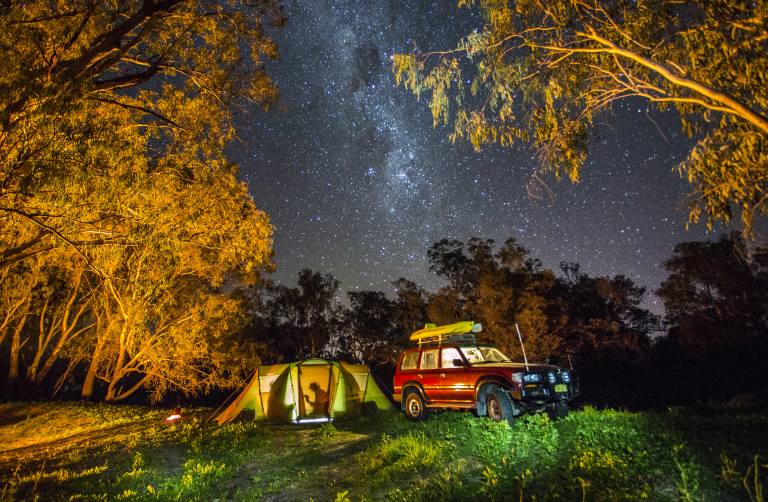
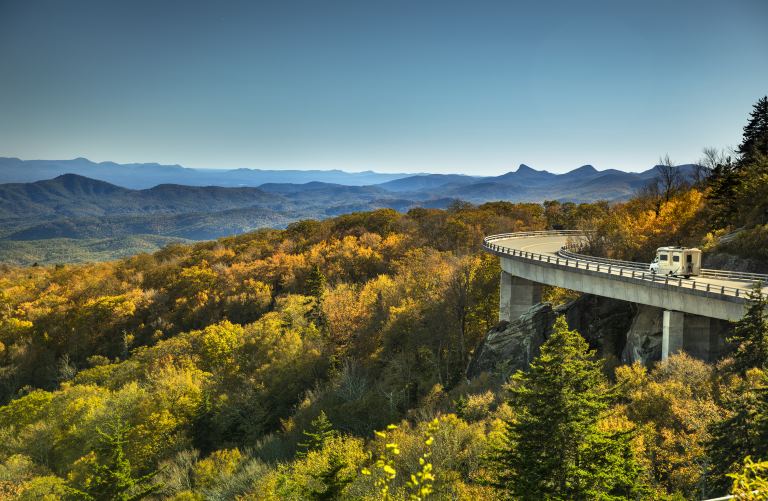
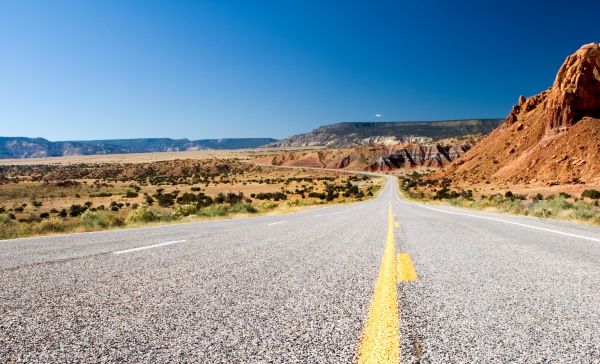
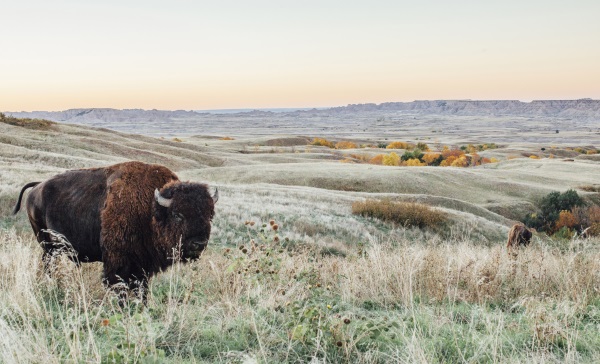
No Comments